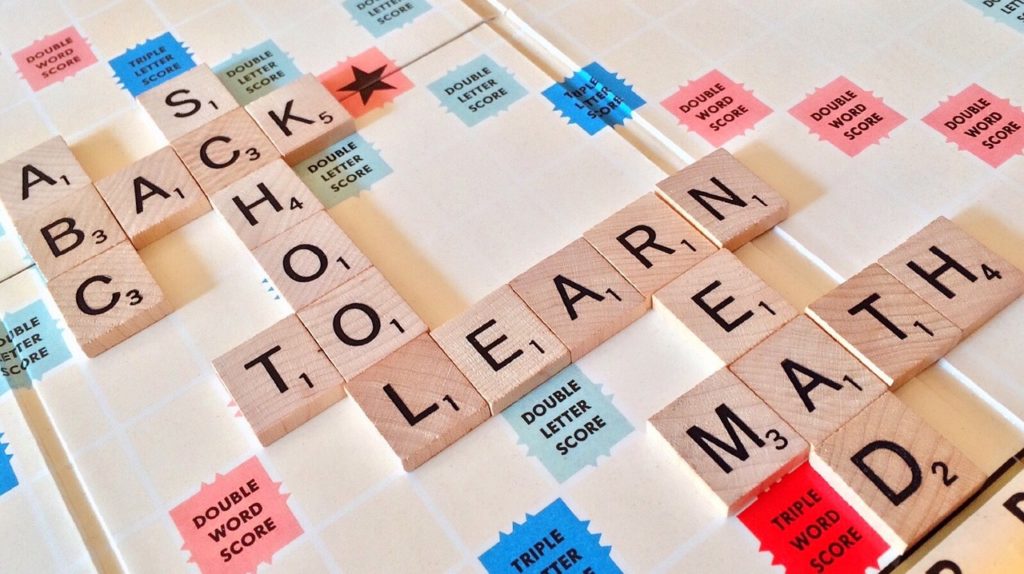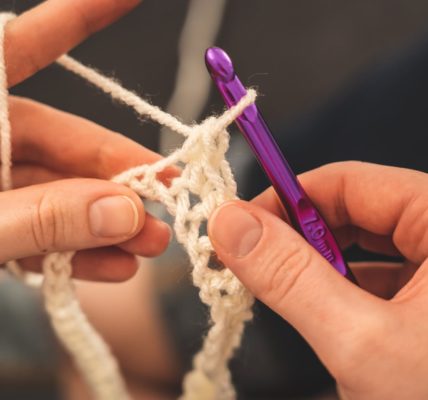The Power of Puzzle Games for Kids
Puzzle games are a fantastic way to engage and entertain kids while providing numerous educational benefits. These games not only stimulate their minds but also enhance critical thinking, problem-solving skills, and creativity. Let’s explore the benefits of puzzle games for kids and how they can effectively educate and entertain young minds.

Benefits of Puzzle Games for Kids
Puzzle games offer a wide range of benefits for children’s cognitive, social, and emotional development. Here are some key advantages:
- Problem Solving: Puzzle games require kids to analyze and strategize, helping them develop logical thinking and problem-solving skills. By facing challenges and finding solutions, they learn to think critically and make informed decisions.
- Cognitive Development: Engaging with puzzles exercises various cognitive abilities, such as memory, concentration, and spatial awareness. These games challenge kids to pay attention to details, remember patterns, and think spatially, promoting the development of their cognitive skills.
- Fine Motor Skills: Manipulating puzzle pieces or objects in puzzle games helps refine children’s fine motor skills and hand-eye coordination. The precise movements required to fit pieces together enhance their dexterity and control.
- Patience and Perseverance: Solving puzzles often requires patience and the ability to persevere. Kids learn to tackle challenges step by step, persisting even when faced with difficulties. This builds their resilience and determination.
- Creativity and Imagination: Some puzzle games allow kids to create their own designs or stories, fostering their creativity and imagination. They can explore different possibilities, experiment with various solutions, and express their unique ideas.
How Puzzle Games Educate and Entertain
Puzzle games strike a perfect balance between education and entertainment, making learning an enjoyable experience for kids. These games engage children by providing a fun and interactive way to acquire new knowledge and skills. By incorporating elements such as colors, shapes, numbers, and letters, puzzle games can teach various concepts while keeping kids entertained.
For instance, jigsaw puzzles can help young children learn about different animals, vehicles, or objects, while word puzzles can enhance their vocabulary and language skills. Sudoku puzzles encourage logical thinking and mathematical reasoning, and tangrams develop spatial awareness and geometric understanding. Additionally, logic puzzles challenge kids to think critically and solve complex problems.
By offering a diverse range of puzzle games, parents can provide an enriching learning environment for their children. It’s important to select puzzles that are age-appropriate and align with their interests and abilities. This ensures that kids stay engaged, motivated, and continue to reap the educational benefits. For more information on other engaging and educational games for kids, explore our articles on cooking games for kids, party games for kids, board games for kids, and card games for kids.
In conclusion, puzzle games have the power to educate and entertain children in a way that promotes their cognitive development, problem-solving abilities, and creativity. By incorporating these games into their playtime, parents can provide a fun and educational experience that supports their children’s overall growth and learning journey.
Types of Puzzle Games for Kids
Puzzle games are a fantastic way to engage and entertain kids while also fostering their cognitive and problem-solving skills. There are various types of puzzle games available that cater to different age groups and interests. In this section, we will explore some popular puzzle games for kids, including jigsaw puzzles, tangrams, Sudoku, word puzzles, and logic puzzles.
Jigsaw Puzzles
Jigsaw puzzles are a classic favorite among kids of all ages. These puzzles consist of various interlocking pieces that need to be assembled to form a complete picture. Jigsaw puzzles come in a range of difficulty levels and themes, allowing kids to choose puzzles that match their interests. Completing jigsaw puzzles helps children develop spatial awareness, hand-eye coordination, and problem-solving skills.
Tangrams
Tangrams are ancient Chinese puzzles that involve rearranging geometric shapes to create specific forms or designs. By manipulating the seven basic shapes, kids can create animals, objects, and even people. Tangrams encourage spatial reasoning, logical thinking, and creativity. They are suitable for both individual play and group activities.
Sudoku
Sudoku is a number-based puzzle game that challenges kids to fill a grid with numbers, making sure that each row, column, and box contains all the digits from one to nine without repetition. Sudoku puzzles come in various difficulty levels, making them suitable for different age groups. Playing Sudoku helps improve logical thinking, concentration, and problem-solving abilities.
Word Puzzles
Word puzzles, such as crosswords, word searches, and word scrambles, are excellent for developing vocabulary, spelling, and language skills. Crossword puzzles challenge kids to fill in words based on given clues, while word searches require them to find specific words hidden within a grid of letters. Word scrambles involve rearranging letters to form meaningful words. These puzzles are not only entertaining but also enhance literacy skills.
Logic Puzzles
Logic puzzles are brain-teasing challenges that require kids to think critically and use deductive reasoning to arrive at a solution. These puzzles often involve a set of clues or conditions that need to be analyzed to determine the correct answer. Logic puzzles come in various forms, including grid-based puzzles, riddles, and brain teasers. They improve problem-solving abilities, analytical thinking, and cognitive skills.
By introducing kids to a variety of puzzle games, parents can provide them with engaging and educational activities. Each type of puzzle offers unique benefits and helps develop different aspects of a child’s cognitive abilities. Encourage your child to explore these puzzle games and discover the joy of solving problems while having fun. For more engaging games and activities, check out our articles on cooking games for kids, party games for kids, board games for kids, card games for kids, math games for kids, animal games for kids, word games for kids, memory games for kids, fun kids games, and music games for kids.
Age-Appropriate Puzzle Games
Puzzle games are not only entertaining but also promote cognitive development in children. It’s important to choose age-appropriate puzzle games that match your child’s developmental stage and abilities. In this section, we will explore puzzle games suitable for toddlers and preschoolers, elementary school kids, as well as tweens and teens.
Puzzle Games for Toddlers and Preschoolers
For young children, puzzle games should focus on promoting their fine motor skills, hand-eye coordination, and shape recognition. Here are a few puzzle game options that are perfect for toddlers and preschoolers:
| Puzzle Game | Description |
|---|---|
| Jigsaw puzzles with large, chunky pieces | These puzzles help children develop hand-eye coordination and spatial awareness. Choose puzzles with vibrant and familiar images that appeal to young children. |
| Shape puzzles | These puzzles typically involve fitting geometric shapes into corresponding cutouts. They aid in shape recognition and problem-solving skills. |
| Wooden puzzles with knobs | These puzzles have large knobs attached to the puzzle pieces, making it easier for little hands to grasp and manipulate the pieces. They enhance fine motor skills and hand dexterity. |
| Picture puzzles | These puzzles involve matching pictures with their corresponding pieces, promoting visual perception and object recognition. |
For more ideas on engaging games for toddlers and preschoolers, check out our article on fun kids games.
Puzzle Games for Elementary School Kids
As children grow older, their puzzle game options expand, challenging them to think critically and solve more complex problems. Here are some puzzle games that are suitable for elementary school kids:
| Puzzle Game | Description |
|---|---|
| Sudoku | Sudoku puzzles involve filling a grid with numbers, ensuring that each row, column, and box contains all the digits from 1 to 9. These puzzles develop logical thinking and problem-solving skills. |
| Word puzzles | Word puzzles, such as crosswords and word searches, help children expand their vocabulary, improve spelling, and enhance their cognitive skills. They are both entertaining and educational. |
| Logic puzzles | Logic puzzles, like grid puzzles and riddles, challenge children to think critically and apply deductive reasoning. These puzzles sharpen problem-solving abilities and encourage logical thinking. |
To discover more educational games for elementary school kids, explore our article on math games for kids.
Puzzle Games for Tweens and Teens
As children enter the tween and teen years, their puzzle game preferences may shift towards more intricate challenges that stimulate their growing intellect. Here are a few puzzle games that cater to this age group:
| Puzzle Game | Description |
|---|---|
| Rubik’s Cube | The Rubik’s Cube is a classic puzzle that tests spatial awareness, problem-solving skills, and patience. Solving the cube requires strategy and logical thinking. |
| Strategy board games | Strategy-based board games, like chess or Settlers of Catan, engage tweens and teens in strategic thinking, decision-making, and planning. These games foster critical thinking skills and encourage social interaction. |
| 3D puzzles | 3D puzzles, such as architectural puzzles or intricate models, challenge older children to assemble complex structures. These puzzles develop spatial awareness, attention to detail, and problem-solving abilities. |
To explore more game options for tweens and teens, take a look at our article on fun kids games.
By selecting age-appropriate puzzle games, you can provide your child with enjoyable and educational experiences. Remember to consider their developmental stage, interests, and cognitive abilities when choosing puzzle games. These games not only entertain but also contribute to the growth and development of your child’s cognitive skills.
Factors to Consider When Choosing Puzzle Games
When selecting puzzle games for kids, there are several important factors to consider. These factors can help ensure that the chosen puzzle games are suitable for their age and interests, while also providing an engaging and educational experience. Here are three key factors to keep in mind: difficulty level, theme and interests, and durability and quality.
Difficulty Level
One of the first things to consider when choosing puzzle games for kids is the difficulty level. Different age groups and skill levels require puzzles of varying complexity. It’s important to select puzzles that are challenging enough to stimulate their minds and encourage problem-solving skills, but not so difficult that they become frustrated and lose interest.
Consider the recommended age range provided by the manufacturer or seller when selecting puzzle games. This can serve as a helpful guide to ensure that the puzzles are appropriate for your child’s developmental stage. Additionally, consider starting with puzzles that have fewer pieces or simpler concepts and gradually progressing to more complex ones as their puzzle-solving abilities improve.
Theme and Interests
To make puzzle games more engaging for kids, it’s beneficial to choose puzzles that align with their interests and preferences. Whether it’s animals, vehicles, outer space, or fantasy themes, selecting puzzles that feature subjects your child is passionate about can enhance their enthusiasm and motivation to solve the puzzles.
Take the time to understand your child’s interests and hobbies, and look for puzzle games that incorporate those themes. This can make the puzzle-solving experience even more enjoyable and help them develop a connection between their interests and learning. Whether your child is fascinated by animals, sports, or music, there are puzzle options available to cater to their preferences.
Durability and Quality
When investing in puzzle games for kids, it’s important to consider the durability and quality of the puzzles. Opt for puzzles made from sturdy materials that can withstand the wear and tear of enthusiastic little hands. Look for puzzles with thick, interlocking pieces that are less likely to break or bend easily.
Another aspect of quality to consider is the clarity of the puzzle images. Ensure that the pictures or illustrations on the puzzle pieces are well-printed and visually appealing. This helps maintain the interest and engagement of your child as they piece together the puzzle.
To make the selection process easier, consider reading reviews or seeking recommendations from other parents or online communities. Their experiences can provide valuable insights into the durability and quality of specific puzzle brands or products.
By considering the difficulty level, theme and interests, and durability and quality of puzzle games, you can choose puzzles that are not only enjoyable for your child but also educational. Puzzles provide an opportunity for kids to develop essential skills such as problem-solving, critical thinking, and spatial reasoning. So, let the puzzle-solving adventure begin!
Tips for Maximizing the Educational Value of Puzzle Games
Puzzle games offer more than just entertainment for kids; they can also provide valuable educational benefits. By engaging in puzzle games, children can develop essential skills such as problem-solving, fine motor skills, patience, and perseverance. Here are some tips for maximizing the educational value of puzzle games:
Encouraging Problem-Solving Skills
Puzzle games inherently require children to think critically and solve problems. Encourage your child to approach each puzzle with a strategic mindset. Help them break down the problem into smaller, more manageable tasks, and guide them through the process of finding solutions. By doing so, you can foster their problem-solving skills and teach them valuable techniques for tackling challenges in various aspects of life.
Enhancing Fine Motor Skills
Many puzzle games involve manipulating small pieces, which can help enhance fine motor skills in children. These skills are crucial for tasks such as writing, drawing, and using utensils. Encourage your child to handle puzzle pieces with precision, promoting hand-eye coordination and finger dexterity. As they manipulate the pieces, they will develop their fine motor skills, which will benefit them in other areas of their daily lives.
Fostering Patience and Perseverance
Puzzle games often require time and effort to complete, which can teach children the value of patience and perseverance. Encourage your child to stay focused and determined, even when faced with challenging puzzles. Remind them that mistakes are a part of the learning process and that they should keep trying. By fostering patience and perseverance, you can instill valuable life skills that will benefit your child in future endeavors.
Remember to choose puzzle games that align with your child’s age and interests. Consider the difficulty level, theme, and durability of the puzzles to ensure an engaging and educational experience. For more exciting game options, check out our articles on cooking games for kids, party games for kids, board games for kids, card games for kids, math games for kids, animal games for kids, word games for kids, memory games for kids, fun kids games, and music games for kids. With the right guidance and selection, puzzle games can be an enjoyable and educational experience for your child.
Image by WOKANDAPIX from Pixabay






